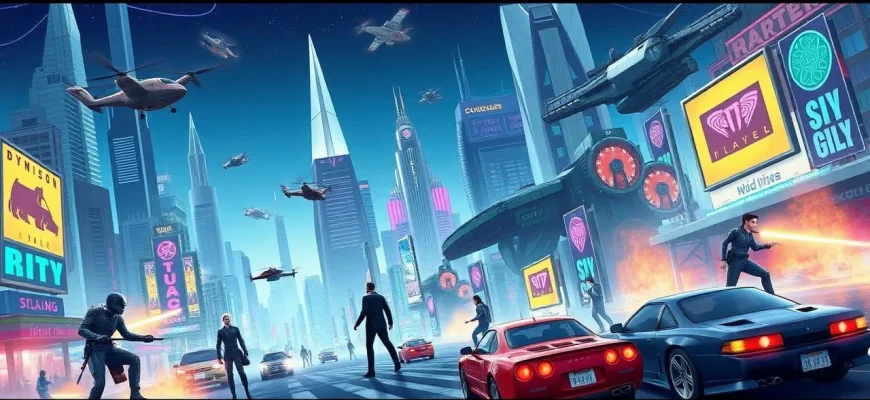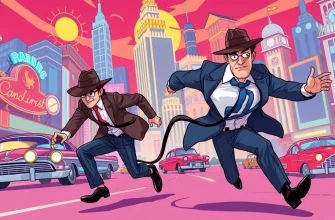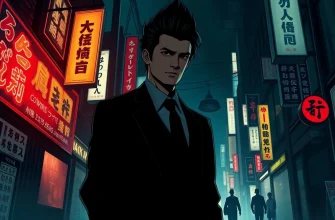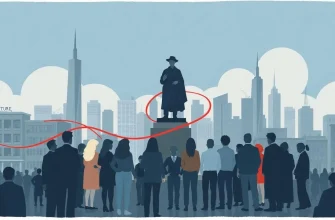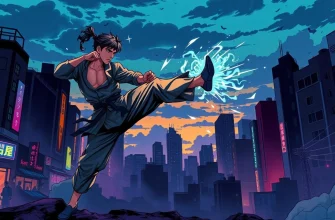Dive into a world where reality bends and twists in ways you never imagined. This curated list of action films set in alternate realities offers a unique blend of adrenaline-pumping action and mind-bending scenarios. Whether it's a dystopian future, a parallel universe, or a world where history took a different turn, these films will take you on a wild ride through the realms of possibility. Get ready for a cinematic experience where the only limit is the imagination of the filmmakers.

Dark City (1998)
Description: A man wakes up with no memory and discovers that his city is controlled by a group of beings who manipulate reality and memories to study human behavior.
Fact: The film's visual style was heavily influenced by German Expressionism, particularly the film "Metropolis."
 Watch Now
Watch Now 
The Matrix (1999)
Description: Neo discovers that his reality is actually a computer-generated dream world, and he must choose between the blue pill of blissful ignorance or the red pill of harsh truth.
Fact: The Wachowskis developed the concept for "The Matrix" after reading "Simulacra and Simulation" by Jean Baudrillard, which explores the concept of hyperreality.
 Watch Now
Watch Now 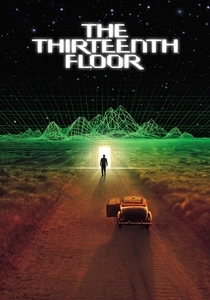
The Thirteenth Floor (1999)
Description: A man discovers that his reality is actually a virtual world created by a computer simulation, leading him to question his own existence.
Fact: The film explores themes similar to "The Matrix," released in the same year, but with a different take on virtual reality.
 Watch Now
Watch Now 
The One (2001)
Description: A rogue Multiverse agent travels through parallel universes to kill versions of himself, gaining their power, until he encounters his last remaining counterpart.
Fact: Jet Li performed all his own stunts in the film, showcasing his martial arts prowess in multiple fight scenes.
 Watch Now
Watch Now 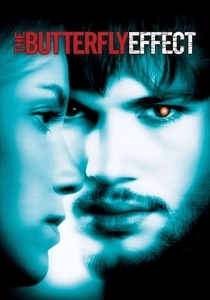
The Butterfly Effect (2004)
Description: A young man discovers he can travel back in time to his childhood through his old journals, altering events to change his present, but each change has unforeseen consequences.
Fact: The film's title refers to the chaos theory concept where small changes can lead to significant differences in outcomes.
 Watch Now
Watch Now 
Source Code (2011)
Description: A soldier uses an experimental military program to relive the last eight minutes of a commuter's life to prevent a terrorist attack, exploring alternate timelines.
Fact: The film was shot in just 25 days, with the train scenes being filmed on a real train in Chicago.
 Watch Now
Watch Now 
Looper (2012)
Description: In a future where time travel exists but is illegal, criminals send their targets back in time to be killed by "loopers," hitmen who close their own loops by killing their future selves.
Fact: The film's setting was inspired by the director's own childhood in China, where he witnessed the rapid urbanization of Shanghai.
 Watch Now
Watch Now 
Inception (2010)
Description: A mind-bending heist film where a team of specialists enter the subconscious mind to implant an idea into a target's mind, navigating through layers of dreams within dreams.
Fact: The film's dream worlds were inspired by real-world locations, and the spinning top used by the protagonist was director Christopher Nolan's own personal item.
 Watch Now
Watch Now 
The Adjustment Bureau (2011)
Description: A man discovers that his life is controlled by a mysterious group of agents who ensure people follow a predetermined path, but he fights to change his fate for love.
Fact: The film is loosely based on a Philip K. Dick short story, and the hats worn by the agents were inspired by the fedoras in Dick's stories.
 Watch Now
Watch Now 
Edge of Tomorrow (2014)
Description: A soldier relives the same day over and over again as he fights in a war against an alien race, gaining new skills and insights with each loop.
Fact: The film was originally titled "All You Need Is Kill," based on the Japanese light novel of the same name.
 Watch Now
Watch Now 
